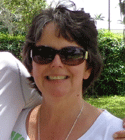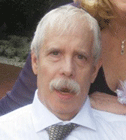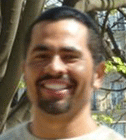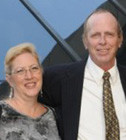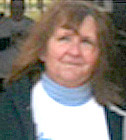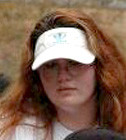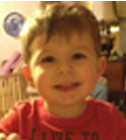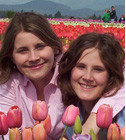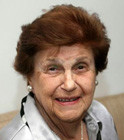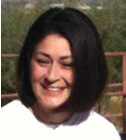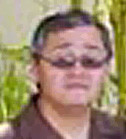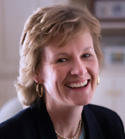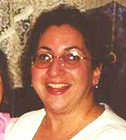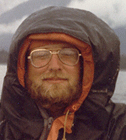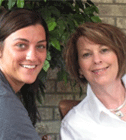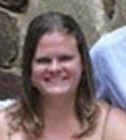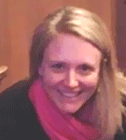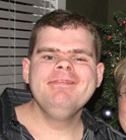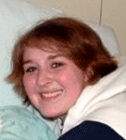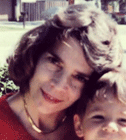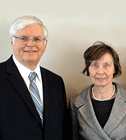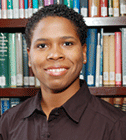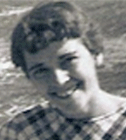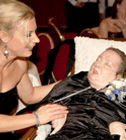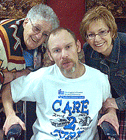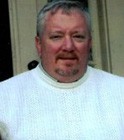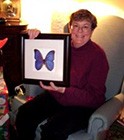Faces of HD
Meet Eva
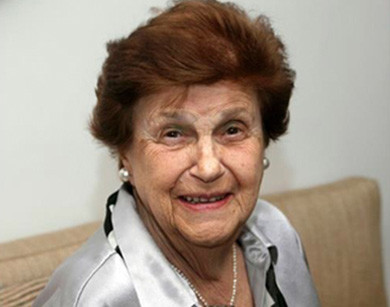
Eva Weissman died on March 2, 2013, half a year short of her 90th birthday, which she had hoped to celebrate with her family and many friends.
She was born Eva Gertrud Broessler, in Vienna, Austria on September 27, 1923. Historical forces, mainly in the form of anti-Semitism, made her a woman of the world. Once her father had been arrested on Kristallnacht, but miraculously released, her parents realized that the family’s lives were at stake. They made efforts to emigrate, and not able to leave themselves, they sent their two children to the Netherlands, to what they hoped would be to safety. However, like much of Western Europe, that country too was overrun by the German army in 1940. Nazi laws were soon instituted, making Eva’s life not only difficult but highly dangerous. For the last part of World War II, she lived in hiding in Amsterdam, sheltered by a loving family related by marriage to the Simons family, with whom Eva had been living upon first coming to the Netherlands. It was this terrible time that shaped Eva’s outlook on life, and it is significant that despite the horrible reality of being separated from her immediate family and losing many family members and friends in the Holocaust, two of Eva’s mottos were: “There is always hope,” and “There are always good people.”
Eva came to the United States in 1947, finally reunited with her parents and her younger sister, and resolutely forged a life for herself. She worked herself up from a menial job in a factory in Michigan City, Indiana to file clerk in New York City, and ultimately to various rewarding administrative positions in Chicago, New York, Pittsburgh, and Cleveland, most often in the medical field. She became an accomplished fundraiser, both as a professional and continuing upon retirement as a volunteer. Due to her friendship with Marjorie Guthriem the Huntington Disease Society became her strong focus, and she steadfastly advocated for more neurological research, greater access to patient care, and expert support for affected families. In recognition, Eva was presented the 1995 Marjorie Guthrie Award and, in 2009, HDSA’s prestigious Lifetime Achievement Award. Her energies were boundless, as she also found time to serve as President of the Lakewood Library Foundation and to participate in the governance of Winton Place, Lakewood’s easily recognizable high-rise building, where she lived for forty happy years and which she loved.
Reaching out to the larger community also included speaking to young people about her experiences, stating: “I feel my generation is the last that can tell the stories of the Holocaust and there is an obligation to do so.” She spoke at schools in Lakewood and in surrounding Ohio areas, but she also spoke in Vienna, Austria at both her former elementary school and gymnasium. She gave interviews, and upon invitation spoke at Notre Dame College (in South Euclid, Ohio), which led to a book, a wonderful collaboration between Professor Gregory Moore and Eva, published in 2009 under the title, “The War Came to Me: A Story of Endurance and Survival.” She loved to share the book with others; complimentary copies abound, and until the very end she handed them out freely to caretakers in the hospital and in her own home.
No remembrance of Eva would be complete without mention of her marriage in 1959 to Oscar Weissman, a medical director and psychiatrist, whom she admired and adored. For twenty-seven years, they spent happy times together — working, traveling, going to the theater, and socializing. Upon his death in 1987, she said: “Not only do I wish to acknowledge what Oscar has done to shape my life and give me the courage to carry on without him, but his wisdom, knowledge, and kindness also brought me into contact with fine people I may not otherwise have met, too many to list here. They will recall our lovingly lived-in and looked-out apartments — high over Lake Michigan in Chicago, the Monongahela River in Pittsburgh, downtown Manhattan in New York, and Lake Erie in Cleveland. Our living quarters gave us joy, and we gladly shared this joy with others who found pleasure in examining different points of view, as well as looking from rooms with a view.” Understandably, this led her niece to refer to Eva’s life as “A Life With a View.”
Nothing was more important to Eva than bringing people together. Members of the extended family who knew little of each other, learned from her how they were related and often for the first time about each other’s existence. She facilitated family reunions and gathered friends as if they were a bouquet of flowers. She entertained — always at home — with frequency, ease, and style. Dinner parties led to luncheon invitations for leftovers. Her correspondence was worldwide and her telephone bills high. Such love and friendship were reciprocated, literally a hundredfold.

